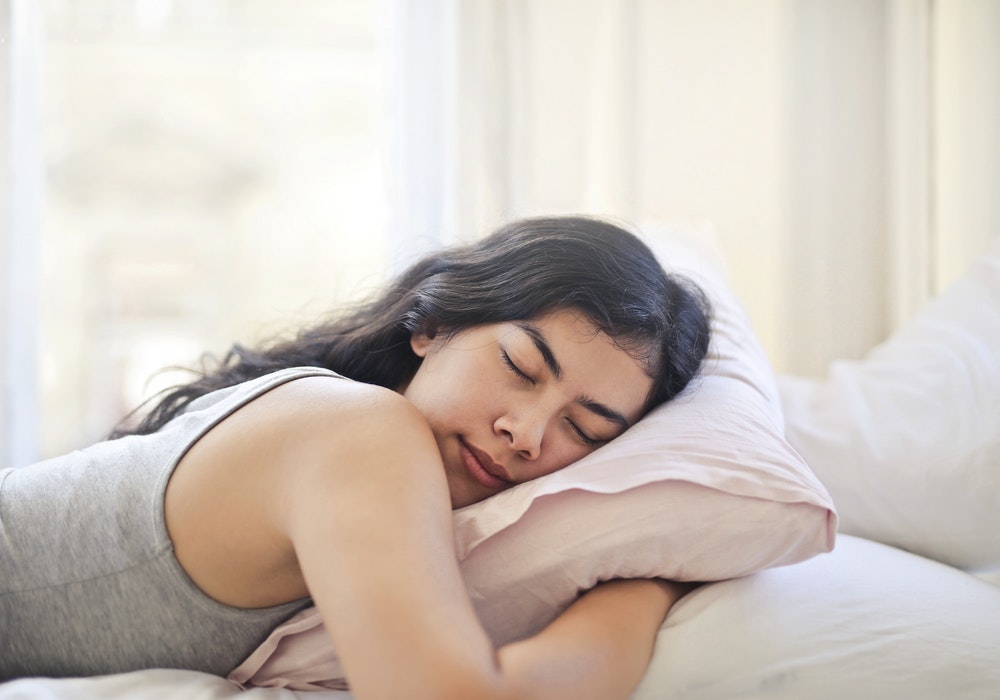Sleep time is the only time a human body can breathe in and rejuvenate itself from the days’ toxic substances that enter and make space in the mind and body. A good sleep cycle means a new sense and the ability to function effectively.
Research at Boston University claimed the need for a sound sleep to eradicate deep-rooted disease, especially Dementia. While we are sleeping, our brain is in the process of playing the role of a cleanser, trying to detoxify the body and washing away all the harmful agents which could accumulate and lead to a threat to our body.
Our brain and the glymphatic system clears the central nervous system in a rapid process. The previous researches had the basic foundational idea that the brain does not sleep while an individual is resting is laid on the concept of detoxification.
Amyloid-betas, which is a form of protein accumulated in our brain from the days’ hardship and activities, are rushed out during the sleep time so that it does not end up destroying the neurons.
The research and studies have brought into light that if a person doesn’t have the required amount of sleep, these accumulated amyloid-betas are unlikely to flush out. As the neurons get destroyed, it becomes the primary reason for Dementia.
Various studies and observations by experts have brought forth a very genuine understanding of disturbed sleep cycle and trouble in sleeping in a person. The brain’s inability to flush out all the accumulated proteins could lead to the degeneration of neurons and inflammation, hence the risk of Alzheimer’s Dementia.
The director of the UCLA Sleep Disorders Center and a Professor in the department of neurology, Dr. Alon Y. Avidan interviewed to Healthline that,
Poor sleep makes the glymphatic system less efficient. These proteins are toxic to the cell, to the neuron, and their accumulation could lead to inflammation and degeneration of those neurons in the brain that over time may contribute to Alzheimer’s dementia.
Now, we cannot say that if you’re sleeping 4 hours a night that in 20 years you’re going to develop Alzheimer’s dementia,” he added. “No one has shown that yet.
Some of the researchers agree to the fact that sleep apnea or sleep disruption has shown signs of Alzheimer’s in individuals during their older age. However, there is still a lack of any evidence which could ultimately link sleep with Dementia, and much observations and study is required to establish the same.
Heather Synder, Ph.D. and the Alzheimer’s Association vice president of medical and scientific operations, expressed her thoughts about the relationship between sleep and Dementia, saying that it needs to be analyzed whether a disease like Alzheimer’s causes a change in the brain which could affect the sleeping cycle? Low sleep quality could lead to Dementia? Or maybe both of these possibilities.
The Idea of Sound Sleep and The Effects of Poor Sleep
A proper study and understanding have made the relationship between Sleep and Diseases related to it very complicated. Persistent myths are surrounding the hours of sleep, the break in the sleep pattern from nighttime sleep, and sleeping during the day.
The sleep hours can vary, and at the same time, break-in sleep hours isn’t a vital sign of proper sleep; it is preferably consecutive. According to the researcher, Dr. Avidan, if a person sleeps for about 8 hours and wakes up feeling week and exhausting, he is probably suffering from some disease.
Dr. Avidan believes that it is not only a basic idea about sickness in a person but also the fact that the disruption in sleep could be due to so many factors; consuming alcohol, sleep apnea medications.
The primary factor among all this is whether a person feels refreshed after a powerful nap or not? The feeling of tiredness and fatigue during the day would probably indicate some other hidden issue.
We need to move beyond the possibility of Sleep-Dementia and be concerned about so many other diseases s which are probably associated with poor sleep such as, Thyroid Dysfunction, hormone imbalance, unnecessary weight gain, and diabetes.
Moreover, there are other dimensions to sleep disruption, which affects an individual mentally; depression, anxiety, poor memory, etc. A dental sleep expert with Sleep Better Austin in Texas, Max Kerr, defines the low sleep consequences into stages. He says that,
It is thought that our nervous system and memories are maintained during our REM sleep. Oftentimes our REM stages of sleep are the first stages to get ‘skipped’ during sleep issues or disorders.
The Stages for better sleep
Annie Miller, a practicing Psychotherapist and Sleep medicine provider & Max Kerr gave specific tips for designing a better sleep routine while working from home or during the present circumstances of COVID:
Establishing a Proper Bedtime Routine
It is always advisable that a proper sleeping routine is set every night. A need to put your body into a consistent habit is necessary wherein a warm bath, reading a book, or listening to soothing music at a fixed time every night could help you to doze off.
Stealing Few hours of Afternoon Nap
The present situation offers work from home opportunities to the working individuals who give them the benefit to function in a bit comfortable manner. Hence, making time for a power nap during the day that would help them to keep active and alert during working hours.
Fix the time of waking up at 7’o clock and try to be rigid with it
Stick to a consistent wake-up time even if you sleep, and push your sleeping time a little bit further. Being compatible with the wake-up time would help the body to adapt and understand to a particular time and function accordingly.
Stop ‘trying’ to sleep if you’re anxious about sleeping.
Do not go to bed with utter anxiety and restlessness. Some days are depressing than the others. Try diverting your mind to something colorful and entertaining, which gives your eyes and mind the relaxation it needs. This will help you doze off at its own time.
Be selective of what you watch before going to sleep.
What you watch subconsciously effects your dreams. If watching horrendous reports about COVID or any horror or crime show before going to sleep, that would make you unable to sleep for a very long time and making you anxious.
Stress and anxiety are the major factors that lead to disruption in sleep patterns. It is advisable to consult a physician if experiencing significant issues and find out the root cause of the problem.




